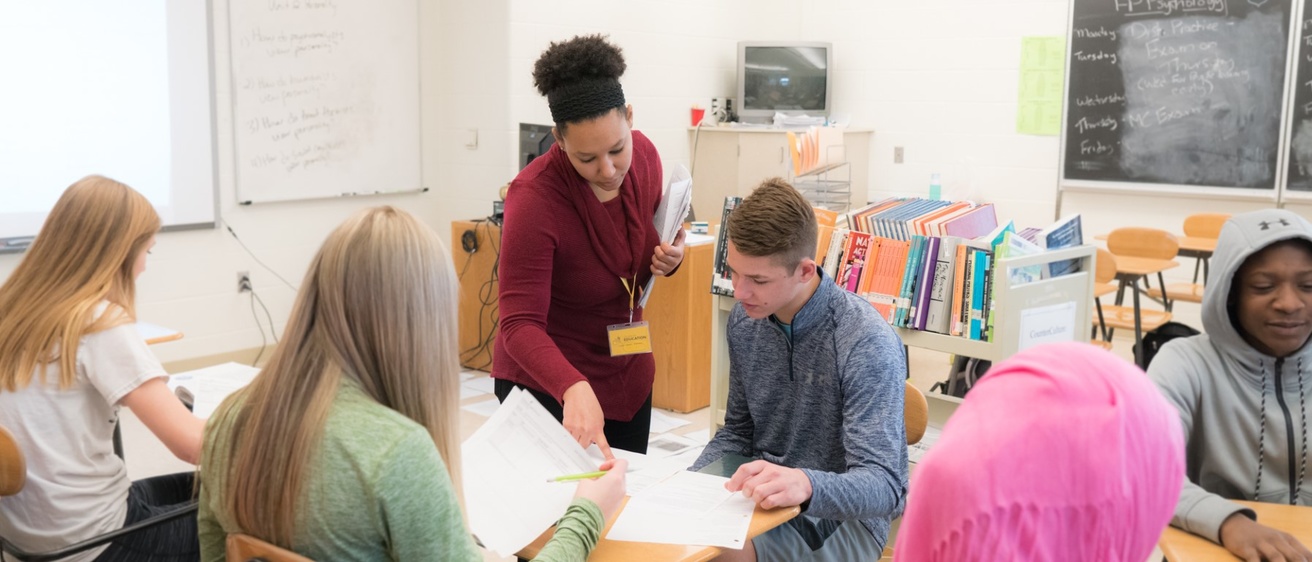Thanks to a $1.26 million U.S. Department of Education grant, the University of Iowa College of Education aims to recruit and train 40 more elementary teachers, with a focus on diversifying the educator workforce.
The U.S. Department of Education has awarded the UI College of Education a $1.26 million grant for a program that will partner with Iowa school districts, community colleges, and community partners. The program will support 40 high quality elementary teachers through coursework and field experiences, resulting in a Bachelor of Arts, a teaching license, and a K12 ESL endorsement in Iowa.
The UI Teacher Education for Equity through Partnerships (TEEP) program will support the elementary education teaching curriculum to center equity in education, which means preparing teachers to challenge inequity that limits their students’ access and opportunities to learn. The program will also help diversify the educator workforce in the program and the partner districts.

The UI College of Education will work with the following: Iowa City, Davenport, College Community, also known as Cedar Rapids Prairie, West Liberty, and Columbus Community School Districts. The college will also work with Kirkwood Community College and Eastern Iowa Community Colleges.
Lia Plakans, departmental executive officer (DEO) of teaching and learning, Mark McDermott, associate dean for teacher education and student services, and Amira Nash, associate director of partnerships and programs for the Baker Teacher Leader Center, will oversee the program.
“In Iowa, like in many other states, the teaching force is not representative of the student body,” Nash says. “During my K-12 experience in Iowa, I never had a teacher that looked like me, but I did have teachers who centered equity in their classrooms, and I know what a difference that made for me. Centering equity in elementary education provides all students the opportunity to learn and to have access to learning.”
The project’s expected outcomes include creating a partnership network that addresses teacher shortages, prepares quality teachers, and supports a diverse workforce. The project will also extend the elementary teacher preparation program to center equity through a sustainable, data informed, Grow Your Own teacher program.

“It is important for us to work to have a teaching force that reflects the demographic makeup of the students they teach. This is not the case in Iowa, and we need to help work to rectify that,” McDermott says. “In addition, research shows that having a teaching force that includes teachers from many different racial and ethnic backgrounds is beneficial for all students in terms of improving learning opportunities.”
The TEEP program is the only Iowa project receiving funding from the U.S. Department of Education’s Teacher Quality Partnership Program, a federal initiative working to strengthen and reform educator preparation at higher education institutions. As a 100% matching grant, the UI is investing the same amount as the U.S. Department of Education.
“I think this shows our commitment to continuing to reflect on our own program, evaluate what we are doing well, and how we can improve, and continually seek to provide learning opportunities for everyone,” McDermott says.
The program leaders are working with faculty members Gregory Beaudine, Josh Coleman, Jen Collins, Anne Estapa, Qianyi Gao, EunJung Kim, and Saba Khan Vlach on the TEEP project.

Plakans says in the first year of the grant, the team is focusing on starting young educators’ clubs in the five partner districts as pathways into teacher education. Currently, the team is preparing to host the first state-wide conference of Educators Rising in Iowa on March 6 to engage with high school students. The project will also recruit the first cohort of TEEP students to start in elementary education in Fall 2024.
For more information, contact Lia Plakans at lia-plakans@uiowa.edu.
“I’m thrilled to get high school students excited about teaching and supporting them on their way to their future careers in education,” Nash says.
